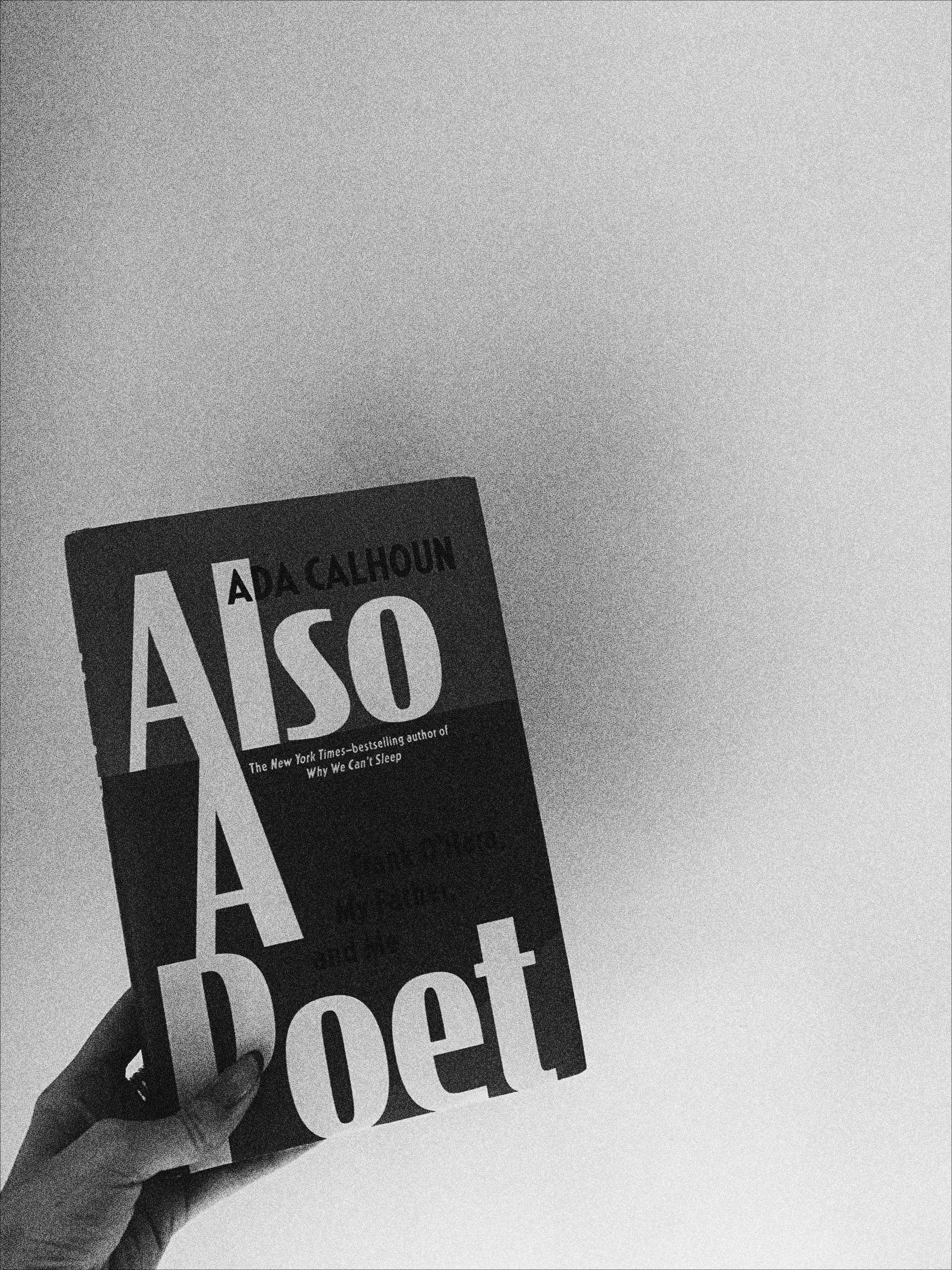I read Frank O’Hara’s official biography, City Poet by Brad Gooch, last summer. It was dense af and really concrete, a hard, no-nonsense landing place. But from this launching point, Ada Calhoun’s Also a Poet is the perfect pairing.
Also a Poet is Calhoun’s exploration of herself through her father’s idolization of Frank O’Hara. It’s also a lesson in journalism, a subtle manifesto on how to (and how not to) ask questions.
Peter Schjejdahl, Ada’s father, is the art critic at The New Yorker. Ada grew up on St. Mark’s Place in East Village under the influence of New York bohemia and the art scene of the 1970s. Her father was an alcoholic during her formative years, and when he became sober, he didn’t seem much interested in having a daughter. As a result, Calhoun made his approval her “drug of choice” and became mature beyond her years while studying his bohemian habits and obsessions.
One of those obsessions is the poet Frank O’Hara.
This book is very meta. It relies on different planes of time and space. Schjejdahl attempted to write a Frank O’Hara biography in the 70s before Gooch became the official biographer. Schjejdahl conducted interviews with O’Hara’s surviving friends, fumbling over how to coax out all the information he’d need to write a comprehensive life story. He was fueled not by journalistic skills or any poetic motivation, but almost exclusively by infatuation with O’Hara’s world. In 2019, Calhoun finds tapes of these interviews (“the O’Hara tapes”) in her parents’ St. Marks home and decides to attempt the same book that her father ended up failing to write.
Schjejdahl’s 1970s interviews are transcribed throughout, with Calhoun’s commentary and frustration included when necessary. She’s annoyed that her father gets off topic so easily; he doesn’t know how to get people to talk with enough substance to give the potential book any zhuzh. He asks leading questions and offers his own opinions on O’Hara too often, all framed in a rose-colored, subjective admiration.
Meanwhile, in present-day, Calhoun is trying to get approval for her own O’Hara project (this book) from O’Hara’s sister Maureen. Maureen felt betrayed by Brad Gooch’s book and his choice to open it with O’Hara’s funeral service, and doesn’t want to contaminate Frank’s legacy with another false depiction by Calhoun when the first one (Gooch’s) “slapped people in the face” by dropping them into O’Hara’s life only at its end.
(This is a valid objection to the biography. The prologue of City Poet begins with the following paragraph:
The afternoon of July 28, 1966, was hot and sunny, with temperatures in the low nineties. Frank O’Hara’s body was resting in a standard coffin from Yardley & Williams Funeral Home in Sag Harbor that was covered in white roses and ivy and supported above a four-plot grave on metal poles. One of the scrub oaks of Green River Cemetery in Springs, Long Island, cast its shade nearby.
Gooch did not give his readers any time to really know O’Hara before demanding that they wrestle with his death.)
As Calhoun pursues this project, negotiating the rights with O’Hara’s family while also facing the emotional reckoning that comes from evaluating her father as a flawed individual, midway through the project she receives news that he has lung cancer. The book then becomes a knot of reflections on the limits and ripples of a life.
I went to an event for this book in July at Books Are Magic in Cobble Hill where Calhoun talked about how books, while they're being written, always want to be something else. You can feel that in this book. It wants to be a one-up on her father’s failure to write the O’Hara book. It also wants to be a biography, empirically. Instead, it is its own thing – not quite autobiography, not quite memoir, not quite essay – and that’s the singularity of it. It always wanted to be the thing she wasn’t writing.
One could argue that most creative things are that way, always wanting to be something they're not while they grow into what they are. The creator has to decide if there's any validity in succumbing to it, or otherwise wrestle with them until they oblige to their vision.
Maureen never granted Calhoun the rights to O’Hara’s poetry. She didn’t trust her to steward them well. This book was never fated to be what she wanted it to be. But it became what it is in its finality, a way to process life as it happens and a campfire story of one life haunted by another’s haunted by another’s.

